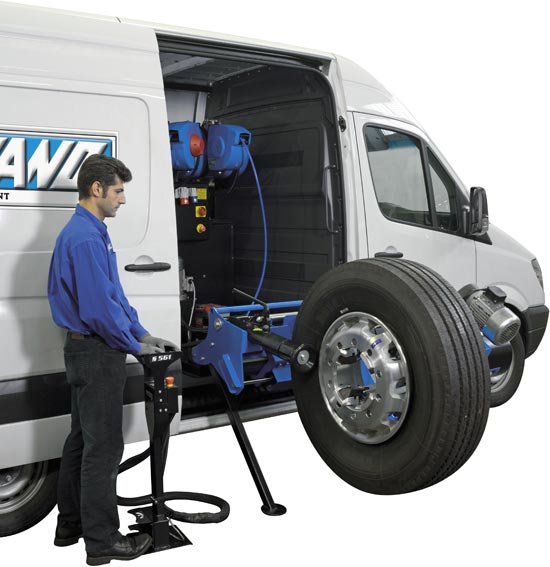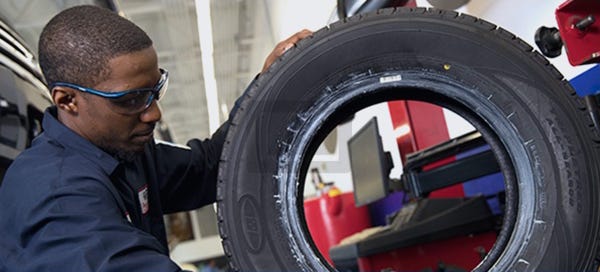Drive with Self-confidence: GMC Tires Service at Morris Tires
Drive with Self-confidence: GMC Tires Service at Morris Tires
Blog Article
Tire Service: The Impact of Weather Problems
When it concerns guaranteeing optimum performance and security when driving, recognizing the impact of weather condition problems on tire solution is essential. From scorching heat to icy roadways, each climate component can dramatically influence tire functionality and general driving experience. By delving right into the effects of varying climate condition on tires, chauffeurs can acquire useful understandings that might boost their automobile's performance and durability. In this conversation, we will explore the elaborate connection in between weather and tire solution, clarifying the significance of weather-specific tire upkeep techniques and factors to consider.
Warm and Tire Performance
When subjected to high temperatures, tires experience changes in efficiency that can substantially influence car safety and handling. The warm produced from long term driving or warm climate problems creates the tire rubber to soften, leading to decreased tread life and increased wear.

Winter Effects
Cold weather condition conditions can have a substantial impact on tire efficiency and safety. In cool weather, tires may likewise shed air pressure a lot more rapidly, which can affect managing and gas effectiveness.
To alleviate the results of cold weather condition on tires, it is essential to consistently check tire stress and inflate them to the supplier's advised levels. Utilizing winter months or all-season tires designed for cold climate problems can additionally boost traction and grip on icy or snowy roads. Correct tire maintenance, including routine evaluations for wear and damage, becomes much more crucial during colder months to make sure ideal efficiency and safety and security.
Rainy Conditions Effect
Tires with worn-out treads are more prone to hydroplaning, where a layer of water constructs up between the tire and the road surface, leading to loss of grip. To battle this, vehicle drivers should regularly evaluate their tires for adequate walk deepness and consider spending in tires particularly made for wet conditions.
Moreover, rainy climate can also reduce exposure, making it challenging for chauffeurs to see the roadway ahead plainly (GMC Tire Service). In such problems, it is important to change driving rates as necessary and preserve a secure adhering to range to permit unexpected stops. Appropriately filled with air tires can also aid in keeping control on wet roadways by providing far better handling and hold
Snow and Tire Safety
Snow-covered roads posture special challenges for motorists, stressing the value of appropriate tire option and maintenance. When driving in snowy conditions, having the best tires can make a substantial difference in safety and efficiency. Winter season tires are developed with special rubber compounds and walk patterns to supply better traction on snow and ice compared to all-season tires. The deeper treads and sipes of winter tires help grip the road better, reducing the threat of sliding and moving.

It is important to adhere to producer guidelines when using and setting up tire chains to stop damages to the tires and car. By choosing the right tires, maintaining correct inflation, and taking into consideration additional grip aids like tire chains, vehicle drivers can enhance their security when browsing snow-covered roads.
Weather-Related Tire Upkeep
Weather-related tire upkeep encompasses a variety of practices aimed at making sure optimum tire function and durability in various weather condition situations. One crucial aspect of weather-related tire upkeep is tire stress policy. Evaluating tire tread routinely read what he said and replacing tires when tread wear gets to a specific depth is crucial for keeping traction and security in unfavorable weather.
Verdict
In conclusion, weather problems have a considerable influence on tire performance and safety and security. From warmth influencing tire stress and use to cold weather decreasing grip, it is crucial to consider the weather when preserving and making use of tires.
In this discussion, we will certainly discover the detailed connection in between weather conditions and tire solution, dropping light on the importance of weather-specific tire upkeep techniques and factors to consider.

Report this page